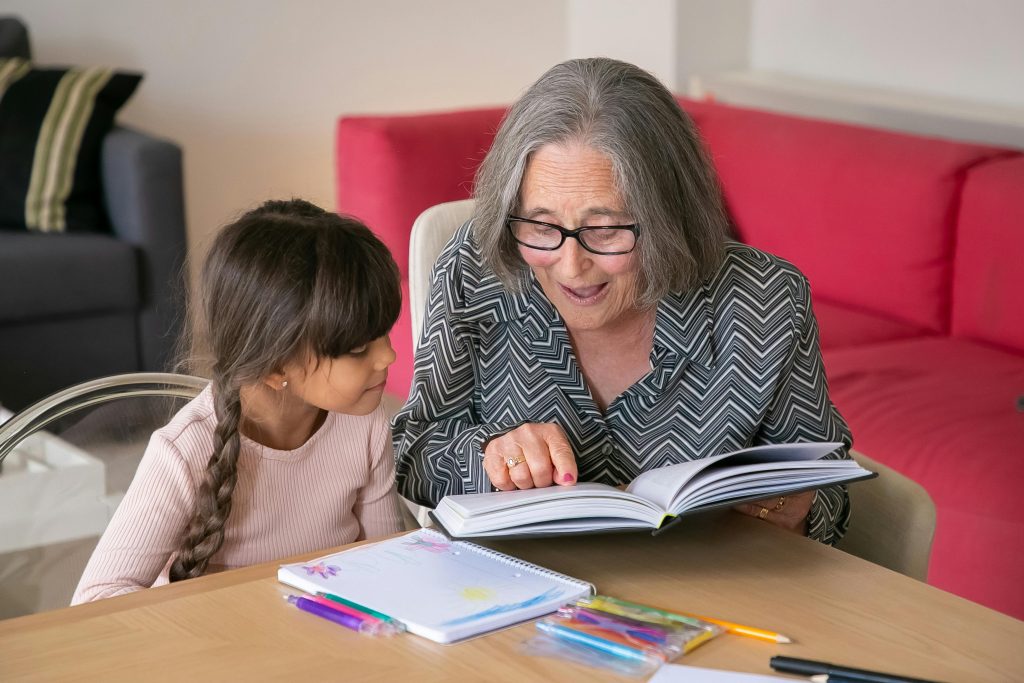Intergenerational learning is the process of gathering knowledge and experiences from one generation to other that enhance the parenting and development of children in case of ECD. This post reveals the process and impact of intergenerational learning for ECD that contributes to the foundation of new generation development.

Table of Content
- Introduction to Intergenerational Learning for ECD
- What is Intergenerational Learning?
- The Role of Intergenerational Learning in Early Childhood Development
- Benefits of Intergenerational Learning for Families and Communities
- Practical Ways to Promote Intergenerational Learning in ECD
- Challenges to Intergenerational Learning in ECD
- Policy and Program Implications
- Conclusion
Discover the importance of intergenerational learning for Early Childhood Development (ECD). Learn how family, community, and elders play a vital role in shaping young children’s growth and education. Enhancing the intergenerational learning, the practice of sharing knowledge and experiences tranfer genrration to generation that contribute to ECD in family and society as well.
Introduction to Intergenerational Learning for ECD
In today’s rapidly changing world, the value of intergenerational learning has gained significant attention, especially in the context of Early Childhood Development (ECD). Intergenerational learning refers to the process where people of different age groups children, parents, grandparents, and community elders share knowledge, values, and experiences. For young children, this exchange creates opportunities for enriched growth, learning, and cultural continuity. By incorporating intergenerational wisdom into ECD programs, societies can ensure children develop with a strong foundation of wisdom, emotional security, and practical life skills.
What is Intergenerational Learning?
Intergenerational learning is not a new concept. Traditionally, it has always existed in families and communities where children learned by observing and engaging with older generations. In modern education systems, however, this form of learning is often overlooked due to increased focus on formal schooling. Yet, research shows that involving grandparents, parents, and even community elders in a child’s early years can significantly improve their social, emotional, and cognitive outcomes.
In simple terms, intergenerational learning is about creating meaningful connections between the old and the young. It is a two-way process where knowledge flows across generations, ensuring children benefit from the wisdom of elders while elders experience renewed purpose and emotional fulfillment.
The Role of Intergenerational Learning in Early Childhood Development
Integrating intergenerational experiences into ECD play a critical role in shaping children’s growth. It supports their development in several ways:
- Strengthening Cultural Identity
Children often learn about their culture, language, and traditions through their grandparents or elders. This transmission of heritage ensures that young children develop a strong sense of identity and belonging.
- Enhancing Emotional Security
Spending time with grandparents or older family members provides children with emotional comfort. The unconditional love and patience offered by elders’ support children’s self-esteem and resilience.
- Promoting Language Development
Intergenerational storytelling, songs, and conversations enrich children’s vocabulary and communication skills. Hearing family histories and folk tales fosters creativity and language acquisition.
- Encouraging Social Values
Through intergenerational knowledge and experiences, children learn respect, empathy, and cooperation. They observe how elders treat others and adopt these values in their daily interactions.
- Supporting Cognitive Growth
Practical life lessons such as cooking, gardening, or traditional crafts passed down from elders help develop problem-solving and critical-thinking skills in young children.
Benefits of Intergenerational Learning for Families and Communities
The positive impact of intergenerational knowledge extend beyond children. Families and communities also benefit from these connections:
- For Parents: Parents gain support in child-rearing when elders are actively involved, reducing stress and promoting shared responsibility.
- For Elders: Older adults feel valued and respected when they contribute to ECD, which helps combat loneliness and provides a sense of purpose.
- For Communities: Intergenerational connections strengthen community bonds, reduce social gaps, and promote collective responsibility for child development.
Practical Ways to Promote Intergenerational Learning in ECD
To make intergenerational wisdom effective, families, schools, and communities can adopt practical strategies:
- Family Storytelling Sessions
Encouraging grandparents to share stories not only preserves traditions but also improves children’s listening and comprehension skills.
- Community Programs
Organizing ECD centers where elders volunteer to teach children crafts, gardening, or cultural practices fosters mutual respect and knowledge sharing.
- School Involvement
Teachers can invite older community members into classrooms to share life experiences, folk songs, or history lessons, making education more engaging and meaningful.
- Technology for Connection
For families living apart, video calls and recorded messages from elders can maintain bonds and allow intergenerational learnings to continue across distances.
- Shared Activities
Simple activities such as cooking meals, celebrating cultural festivals, or playing traditional games can create natural learning opportunities between generations.
Challenges to Intergenerational Learning in ECD
Despite its benefits, intergenerational learning faces challenges in modern society. Urbanization, migration, and nuclear family structures often limit children’s exposure to grandparents and elders. Busy work schedules and reliance on digital entertainment also reduce face-to-face interactions. Addressing these issues requires deliberate efforts from families, communities, and policymakers to create opportunities for cross-generational engagement.
Policy and Program Implications
For intergenerational knowledge and experiences to be integrated effectively into ECD, policymakers and educators should:
- Design ECD programs that actively include grandparents and elders.
- Develop community centers that encourage intergenerational activities.
- Support family-friendly policies that allow parents and grandparents to engage more in children’s upbringing.
- Train educators to recognize the value of intergenerational knowledge in shaping holistic child development. If need more information Read here.
Conclusion
Intergenerational learning is a powerful tool for Early Childhood Development. It nurtures children’s emotional well-being, cognitive growth, and cultural identity while simultaneously strengthening family and community ties. In an era where social connections are increasingly fragmented, reviving and promoting generation to generation learnings can provide the stability and wisdom children need to thrive. By embracing this approach, societies not only enrich the lives of young children but also honor and value the contributions of older generations. If need more information Read here.